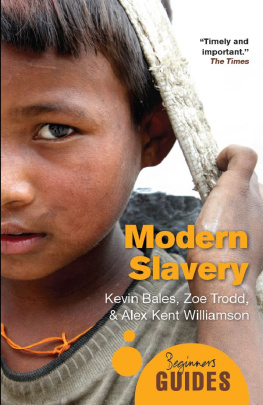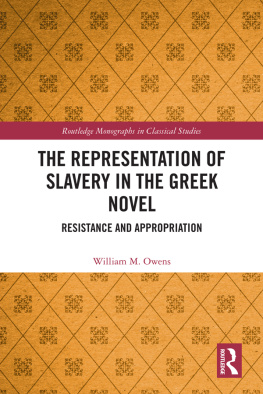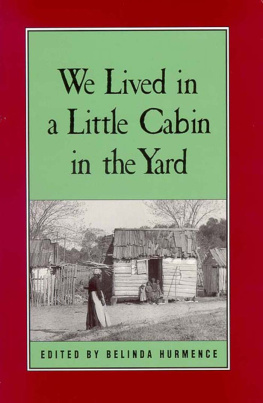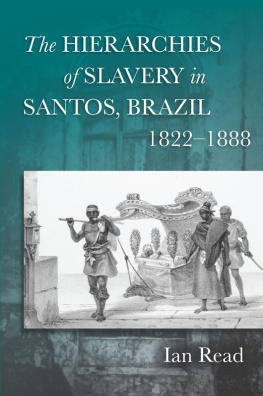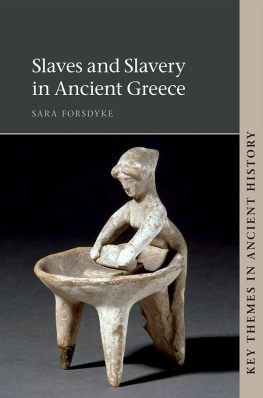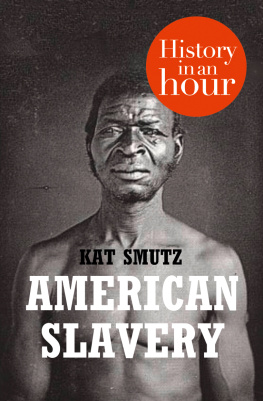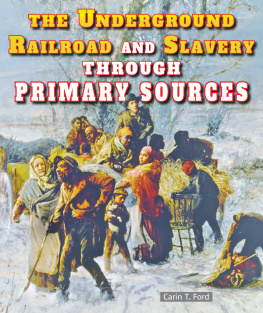Modern Slavery
A Beginners Guide
A concise dismissal of the comforting myth that slavery is a thing of the past and a call to action to all citizens to ensure our governments, communities, businesses, unions, and the charities we support are doing everything possible to finally eradicate slavery from our midst.
Aidan McQuade, Director of Anti-Slavery International
This is a book to make a readers blood boil and, I hope, to move him or her to action.
Adam Hochschild, award-winning author of Bury the Chains and King Leopolds Ghost
Bales, Trodd, and Williamson fused their diverse expertise to write an essential, concentrated, and spare analysis. Throughout, the most authoritative voices, those of survivors, remind us of the vital humanity that is attacked by modern-day bondage. The authors include a shocking and overdue discussion of public health crises that the crime engenders, and set forth a no-nonsense roadmap towards real abolition. Required reading for anyone seeking to understand the great human rights challenge of our time.
E. Benjamin Skinner, author of A Crime So Monstrous (2008) and Fellow at the Harvard Kennedy Schools Carr Center for Human Rights Policy
This book, a window into the world of slavery from ancient history to the modern era, shows the propensity of man to enrich himself by enslaving his brother and justify his actions in the name of gods.
Jean-Robert Cadet, former child slave and author of Restavec: From Haitian Slave Child to Middle-Class American
ONEWORLD BEGINNERS GUIDES combine an original, inventive, and engaging approach with expert analysis on subjects ranging from art and history to religion and politics, and everything in between. Innovative and affordable, books in the series are perfect for anyone curious about the way the world works and the big ideas of our time.
africa | genetics |
anarchism | global terrorism |
aquinas | hinduism |
artificial intelligence | history of science |
the bahai faith | humanism |
the beat generation | islamic philosophy |
biodiversity | journalism |
bioterror & biowarfare | judaism |
the brain | lacan |
british politics | life in the universe |
the buddha | literary theory |
cancer | machiavelli |
censorship | mafia & organized crime |
christianity | magic |
civil liberties | marx |
classical music | medieval philosophy |
climate change | middle east |
cloning | modern slavery |
cold war | NATO |
conservation | nietzsche |
crimes against humanity | the northern ireland conflict |
criminal psychology | oil |
critical thinking | opera |
daoism | the palestineisraeli conflict |
democracy | particle physics |
descartes | paul |
dyslexia | philosophy of mind |
energy | philosophy of religion |
engineering | philosophy of science |
the enlightenment | postmodernism |
epistemology | psychology |
evolution | quantum physics |
evolutionary psychology | the quran |
existentialism | racism |
fair trade | renaissance art |
feminism | shakespeare |
forensic science | the small arms trade |
french revolution | sufism |
volcanoes |

Modern Slavery
A Beginners Guide
Kevin Bales
Zoe Trodd
Alex Kent Williamson

A Oneworld Book
First published by Oneworld Publications, 2009
First published in the Beginners Guide series, 2011
This ebook edition published by Oneworld Publications 2011
Copyright Kevin Bales, Zoe Trodd,
and Alex Kent Williamson 2009
The right of Kevin Bales, Zoe Trodd, and Alex Kent Williamson to be identified as the Authors of this work has been asserted by them in accordance with the Copyright, Designs and Patents Act 1988
All rights reserved
Copyright under Berne Convention
A CIP record for this title is available from the British Library
ISBN 9781780740348
Cover by vaguelymemorable.com
Oneworld Publications
185 Banbury Road
Oxford OX2 7AR
England
Learn more about Oneworld. Join our mailing list to find out about our latest titles and special offers at:
www.oneworld-publications.com
Preface
The secret world
There are twenty-seven million slaves alive today. This is more than at any point in history and as many as were seized from Africa in 350 years of the Atlantic slave trade. Put another way, todays slave population is greater than the population of Australia and almost seven times greater than the population of Ireland. These people are paid nothing, are economically exploited, and are under violent control.
They are also invisible. Because slavery is illegal in all countries and banned by international conventions, it has become a hidden crime. Locked away, slaves are difficult to find and count. In the past, when slavery was legally sanctioned in many countries, slaves were counted and measured, their economic value was recorded, and they were listed in legal documents from contracts to wills. For that reason, we have useful, though partial, measures of the numbers, demographics, and economic value of slaves for much of human history. Today the story is much different. Only a small fraction of slaves are reached and freed every year and, until recently, our ignorance of their secret world has been vast. Researchers have therefore faced the problem of data, as well as numerous ethical dilemmas and the sheer controversy socially and politically of studying contemporary bondage.
Yet there is a growing recognition of the problem and scope of modern slavery. Scholars have begun to shape a field of research and governments and citizens are awakening to the fact of a new phenomenon: a slavery where slaves are cheap and disposable. Introducing that slavery in all its forms, this book opens up the secret world of twenty-seven million people. Using reliable data, and with an eye for both the history of slavery and the future of abolition, we tackle head-on one of the greatest human rights challenges facing us today.
lays out the long history of slavery from its earliest manifestations in ancient Sumeria, through antebellum American chattel slavery, to twenty-first-century forms around the globe and discusses abolitionism and slave resistance across the centuries. It introduces modern slavery, including the current situation for slaves in the US and the UK, discusses child slavery, and explains the differences between Old and New slavery.
Next page
